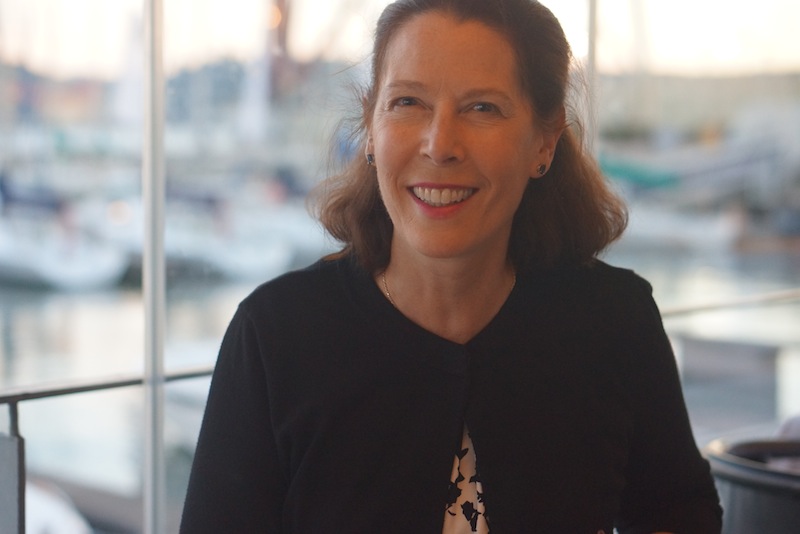At W3C Karen Myers serves as business development leader for the Americas and Australia regions. In this role she engages in a variety of new business outreach and member engagement activities to support multiple vertical industries participating in W3C, including Publishing. In 2012, together with Ivan Herman, W3C technical lead for publishing, Karen helped organized a series of W3C Workshops in the US, Europe, and Asia to explore the opportunity for new standards work for the publishing industry at W3C. By 2013 the first W3C Publishing Interest Group was formed. Since then she has been an advocate for the publishing community at W3C, managing the communications for W3C’s combination with IDPF in February 2017 as well as the launch of the new Publishing Business Group and Publishing Working Group. Before joining W3C, Karen worked for Leo Burnett Technology Group as Vice President of Strategic Planning in Boston, MA and in Frankfurt, Germany. She enjoys spending as much time as possible at her cottage in Canada.
Karen will be speaking at ebookcraft 2018 with Tzviya Siegman in a session called Great Expectations – The Sequel: Updates from the digital standards frontlines.
Curators of book content, ebook production workflow managers, data gurus, and technologists are just some of the publishing industry professionals who will gather in Toronto from March 21 to 23 for BookNet Canada’s ebookcraft and Tech Forum conferences at the MaRS Discovery District.
I feel privileged to be among them to speak, together with Tzviya Siegman, Information Standards Lead for Wiley and co-chair of the World Wide Web Consortium’s (W3C) Publishing Working Group, about W3C’s roadmap for the future of publishing.
“Great Expectations – The Sequel” is the title of our session, in which we will sketch out, much like Charles Dickens did with his cast of interesting characters in old London, a number of diverse web technologies that, taken together, weave an important story about how they impact publishing now and how they will impact it in the very near future.
We’ll profile EPUB and its interesting cycle of industry adoption. For example, why did the original EPUB version (2007’s EPUB 2) take off quickly, yet in exactly those segments that rapidly adopted EPUB 2, adoption of the updated versions (2011’s EPUB 3 and now 2016’s EPUB 3.1) was slower?
We'll offer an in-depth look at how the work of the Publishing Working Group is developing the scaffolding to bind together the features for and requirements of publishers with the web, creating the promise of a future for a web-based publication that can be read in either online or offline states, and can also be installed in its own separate package.
While the names of W3C’s technologies may not be as creative as Pip (Great Expectations), Quilp (The Old Curiosity Shop), or the Artful Dodger (Oliver Twist), we will briefly introduce you to ARIA, POE, WOFF, and i18n:
- Web Accessibility Initiative – Accessible Rich Internet Applications (WAI-ARIA) Suite defines a way to make web content and web applications more accessible to people with disabilities.
- Permissions Obligations and Expressions (POE) is creating a standard vocabulary so that content owners can express terms and processing systems can determine what permissions and other terms are associated with a given resource or collection of resources.
- Web Open Font Format (WOFF) is an open format for using fonts on the web. People design fonts, save or convert them to WOFF, and use other technologies (like HTML, CSS, or SVG) to tell browsers and other software which fonts to download and apply.
- Internationalization (i18n) makes it possible to use web technologies with different languages, scripts, and cultures.
We’ll also touch upon how the W3C’s work on Verifiable Claims, Web Payments, and WebVR foreshadow new opportunities to strengthen customer relationships and create new reading and learning experiences.
Of course every good story has some underrated characters who challenge us and MathML is certainly one. We need to better understand why math doesn't work on the web and how we can collaborate more closely with the web developer community so that math, like streaming video, becomes a first-class citizen of the web.
Tzviya and I look forward to sharing our W3C story with you and to hearing the stories of all the other speakers and attendees at ebookcraft 2018.
If you'd like to hear more from Karen Myers about digital standards, register for ebookcraft, March 21-22, 2018 in Toronto. You can find more details about the conference here, or sign up for our mailing list to get all of the conference updates.



